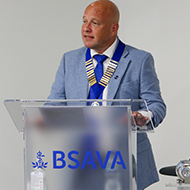Academics look at contraception to manage wildlife
Pigeons are among the species that contraceptives have been trialled on.
Specialists are gathering at the University of York for a workshop exploring how contraception can be used to humanely control wild animal populations.
The method could become widely used as a non-lethal alternative to culling to control population numbers, especially as hunting is becoming less popular and methods such as poisoning and snares are increasingly restricted or banned.
The workshop, taking place on 17-18 June 2024, will look at the practical applications of wildlife fertility control in Europe. The first day will focus on the species and contexts in which fertility control might be suitable. The second day will look at the challenges of implementing fertility control as well as the opportunities.
One of the speakers at the event is Marco Pellizzari, a veterinary consultant, who will be sharing his work on controlling urban pigeon numbers in Italy.
Dr Pellizzari explained: “The research I am sharing in York is conclusive that fertility control is an effective method, particularly when combined with other methods such as [a] ban on feeding pigeons, of controlling numbers of feral pigeons. This has the best outcomes for our towns and cities, but also the birds themselves.
“We have previously found that overcrowding results in stress in birds, that leads to parasites in pigeons populations with negative effects on their health and undermines colonies. Fertility control is the best way to develop a peaceful coexistence between humans and wild birds.”
The UK government has already started to explore the possibility of using fertility control to manage wildlife. The Animal and Plant Health Agency is currently taking part in a project to trial the use of an oral contraceptive bait to control grey squirrel numbers.
Other wildlife species which could potentially be managed through the use of contraceptives include rats, deer, and parakeets.
Giovanna Massei, Europe director at the Botstiber Institute of Wildlife Fertility Control and a professor at the University of York, said: “In today's human-dominated world, safe spaces for wildlife are becoming scarcer and many populations of wide-ranging animals are forced to inhabit the same spaces and share resources with people.
“We are hopeful that by bringing so many international experts to York to discuss this we can create a new framework and sense of collective responsibility for developing peaceful coexistence between humans and wildlife.”
Image © Shutterstock



 Julian Hoad has been confirmed as the new president of the British Small Animal Veterinary Association (BSAVA), taking over from Carl Gorman.
Julian Hoad has been confirmed as the new president of the British Small Animal Veterinary Association (BSAVA), taking over from Carl Gorman.